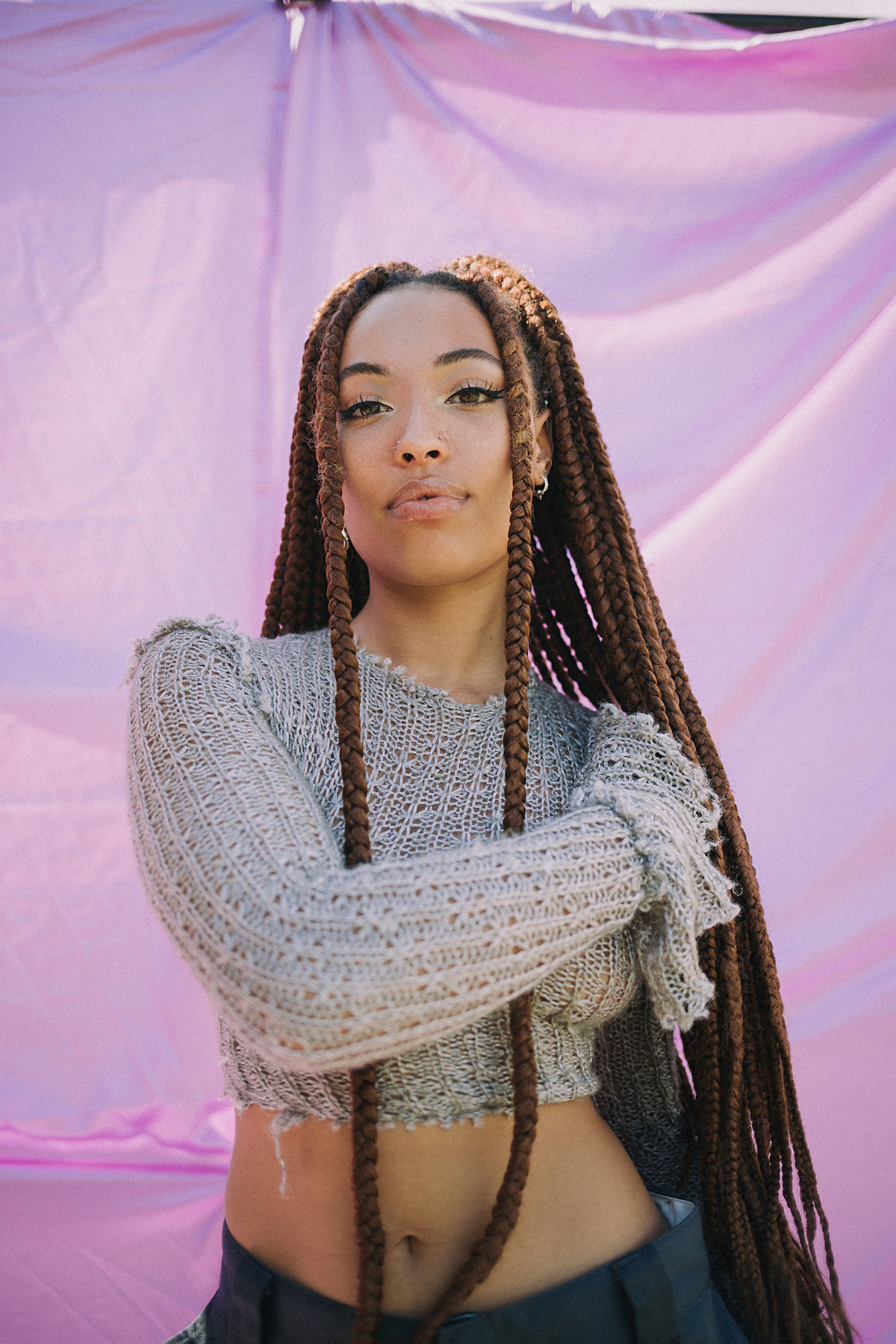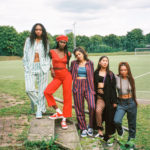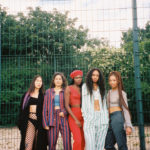When we choose to throw away the singular westernized standard of beauty that has reigned…
#theWOCproject
Re-defining Beauty with Marcella, Maxien, and Ruby23 October 2018
Last month, we re-introduced you to two amazingly powerful women who are passionate about their role as leaders in their communities and are not afraid to speak out about issues of inequality and what it is like to navigate the world as women of color. This month, we would like to introduce you to three other incredible women of color and share their stories.
*Our interviews with Marcella, Maxien, and Ruby took place in the summer of 2017 so all information is relative to the time in which the interview was conducted.
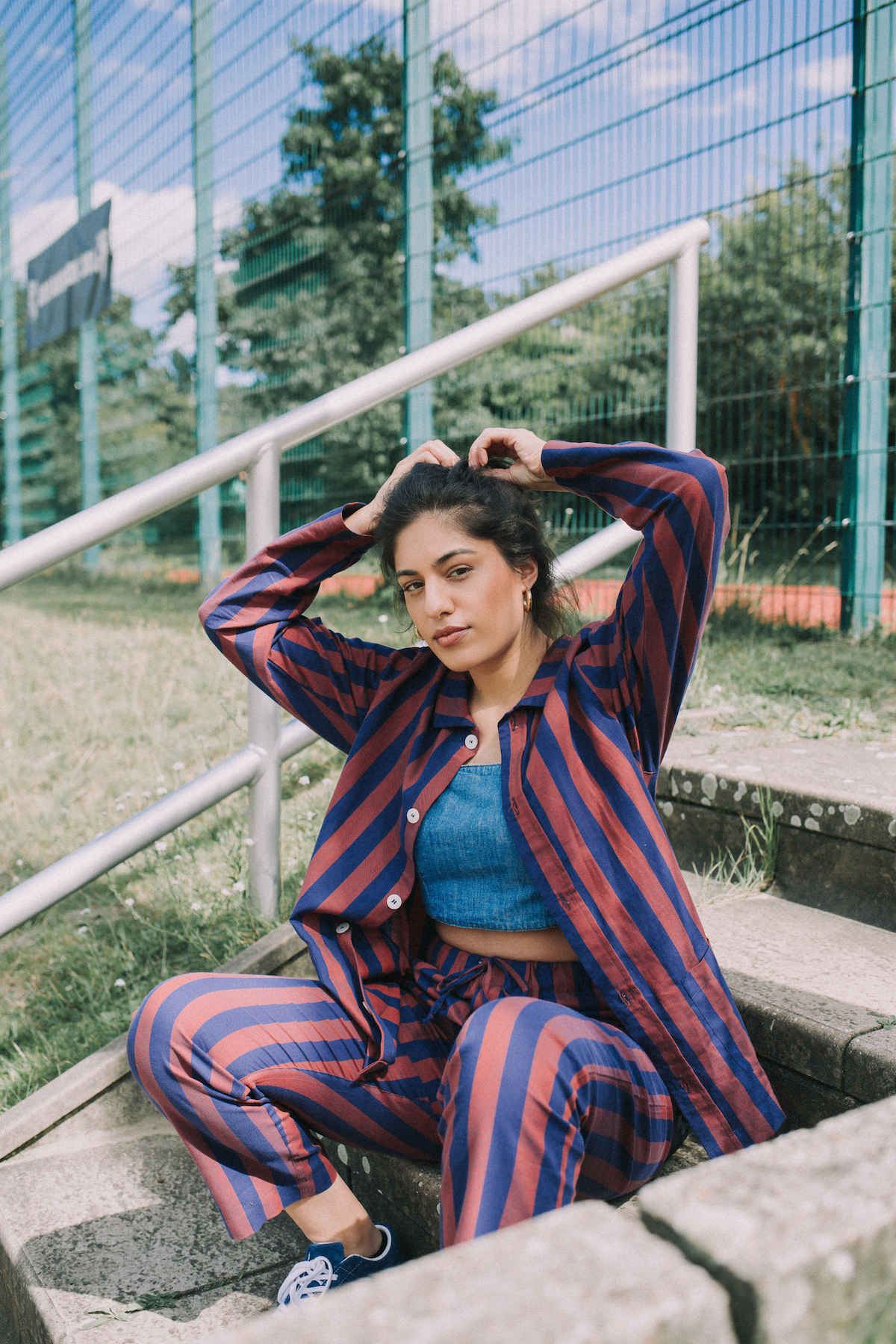
Marcella:
My name is Marcella and I am 26 years old. I was born and raised in Stuttgart in the south of Germany. I just finished my apprenticeship as an event manager and I am currently working at a PR & event agency here in Berlin. I moved to Berlin 5 years ago to study geography, which didn’t really work out. But I always knew that I wanted to move away from Stuttgart and Berlin has been the perfect choice. My parents are from Afghanistan and came to this country in the late 80s. I am more than happy and thankful to say that I did not have to witness a war and wasn’t forced to leave my home. I must say my parents are the ones who endured racism more than I probably ever have. Still, (being born and raised here), I unfortunately feel hostility from many people in form of comments, stares, and “jokes” that are meant to be “funny.”
What are the differences between Stuttgart and Berlin? Has your experience as a WOC been different in both cities? If so, why you think that is? Also Is there a strong Afghan community in Stuttgart and/or Berlin?
Marcella: Stuttgart is much smaller than Berlin and there aren’t many tourists. Stuttgart is my hometown but still I feel a lot more comfortable and at home in Berlin. The only major difference I noticed here in Berlin is that a lot of people begin speaking in English with me. I can’t really tell why, I know there are a lot of tourists, but there are also lot of people with migration backgrounds as well.
As a woman of color, being both proud of who you are and identifying with your ethnicity often becomes the only identifying modifier by which the white majority see women of color. Oftentimes pride in oneself and one’s heritage is interpreted by the white majority as confirmation that women of color are asking to be first and foremost identified as women of color 100% of the time every time. Women of color are also often expected to speak for and represent our entire race – something the white majority does not encounter. Would you agree with this?
Marcella: I totally agree. I am proud of my heritage, but I am exhausted from having to explain myself everytime.
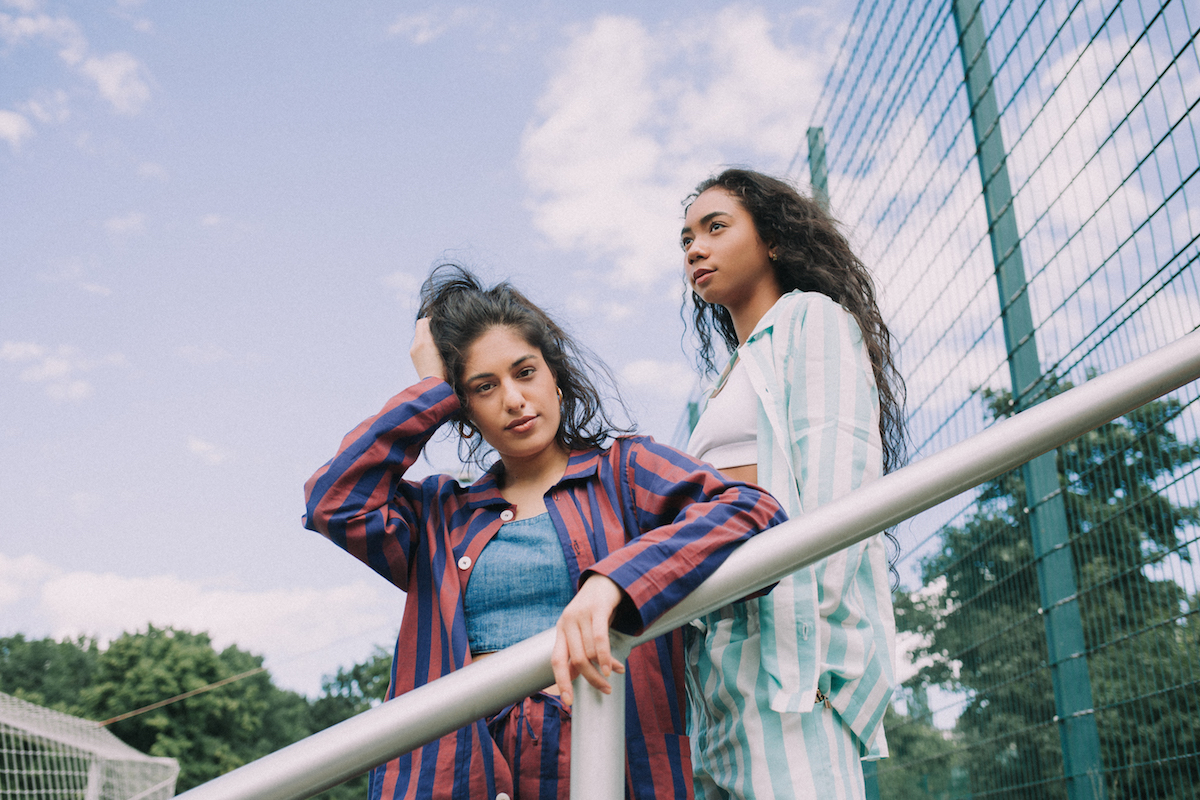
How important is your heritage to you?
Marcella: For me personally, it is very important to know where you originally come from. Or to have the curiosity to learn more about your heritage which, I think, leads to a better understanding of oneself. I’m still learning more and more.
Culture and ethnicity are not always the same thing. This is true for people of color who are adopted into families from a different ethnicity as well as those who are of mixed-race, or grew up in a different country to that of their heritage. People who fall into this category do not traditionally fit a specific profile or demographic. As a woman who was born and raised in Stuttgart, Germany but who is ethnically Afghan, what has your personal experience been on this front? How much Afghan culture were you raised with and do you then identify as German, Afghan, a bix of both, or more one than the other, or not really care that much either way?
Marcella: People usually think I have very strict parents and are surprised to hear that I moved out of my parents’ house ‘so early’. I was raised with both cultures which I am very happy about.

Maxien:
My name is Maxien Harman and I’m 24 years young! I was born in Amsterdam where I grew up for most of my life. I lived in the west of Amsterdam with my mom, dad, and sister until I was three years old. My mom always dreamt of moving back to Ghana with the family and my dad was also in love with Ghana so we did. I lived there until I was seven. After my dad’s passing, we had to move back to The Netherlands. We already sold the old house in Amsterdam West, so we moved to a new spot in Amsterdam South East and that’s where I basically spent the rest of my childhood and grew into to the woman I am today. For a living, I DJ and I am getting into the whole producing side. I also model and like everyone I got some side hustles lol.
You mention that you have been living in Berlin for about a year and a half. What is your general impression of Berlin so far? How does your experience as a woman of color differ in Berlin from Amsterdam? More specifically, you mentioned that the area where you grew up in Amsterdam (the South East part of Amsterdam) was not very dutch – is this area populated by different ethnic groups, or mainly those from Ghana?
Maxien: I love Berlin! but I miss my city Ams a lot. I miss the warmth that Amsterdam has and I think that’s mainly because it’s way smaller in comparison to Berlin. I have definitely noticed that in Berlin it’s way less multicultural then in Ams. For instance, the area I live in Friedrichshain is the total opposite of the area I grew up in. You would only have to walk 5 minutes to go to the closest afroshop etc. whilst in Berlin it would take me at least 45 minutes lol. I think that’s mainly because Berlin is populated by different ethnic groups.
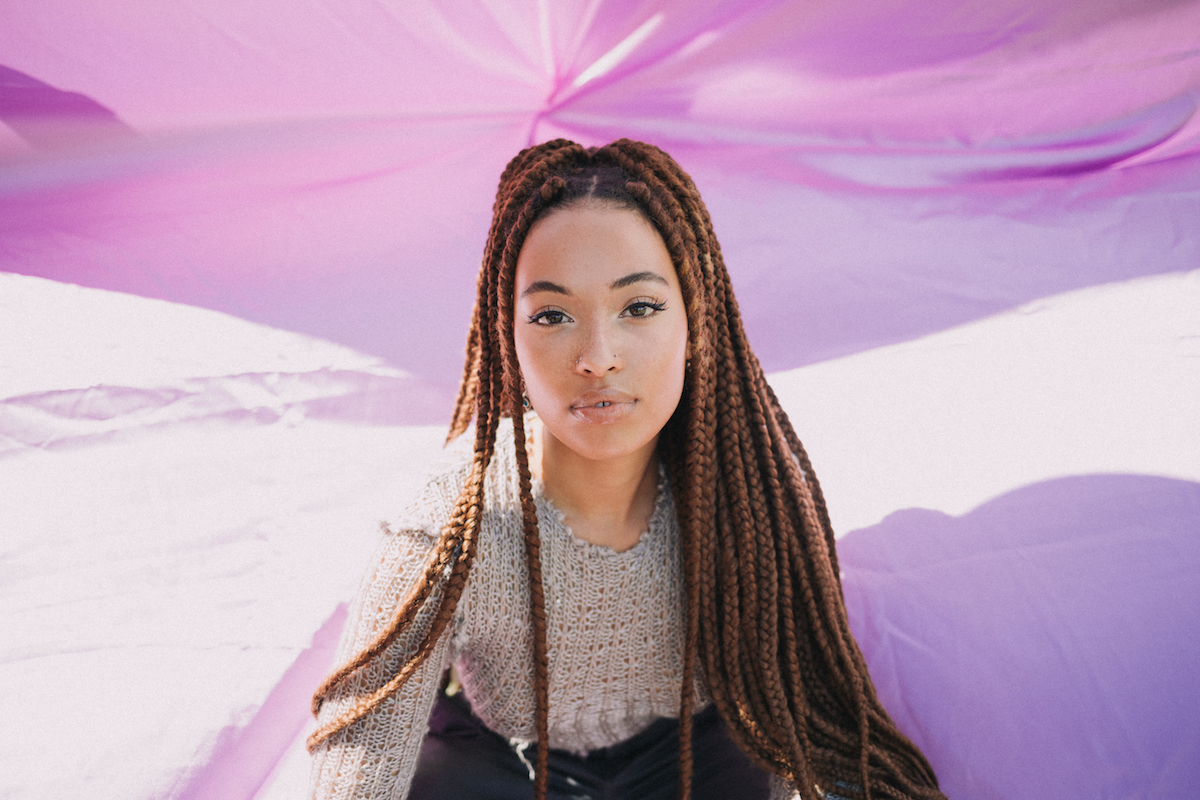
You mention that you typically only identify as Ghanaian even though you are also half Dutch and that this has to do with being raised by your Ghanaian mother for the majority of your life after your father’s passing when you were very young. You also state that the difficulty with being mixed race is that you are never “black” enough for “black” people and never “white” enough for “white” people. Clearly identity is very tied to culture and NOT just skin color – especially for those of mixed-ethnic backgrounds so it is logical that you would identify most strongly as Ghanaian. I am curious to know however, if you think that the feeling of never fitting in (i.e. not being “black” or “white” enough) has also resulted in you identifying with one of your ethnicities and not the other? Do you feel that society has placed this pressure on you and has “forced” you to pick?
Maxien: I wouldn’t necessarily say that I “had” to choose a side. It has nothing to do with picking sides cause at the end of the day we are all the same however because I was raised with the Ghanaian culture I feel more connected with my other half.
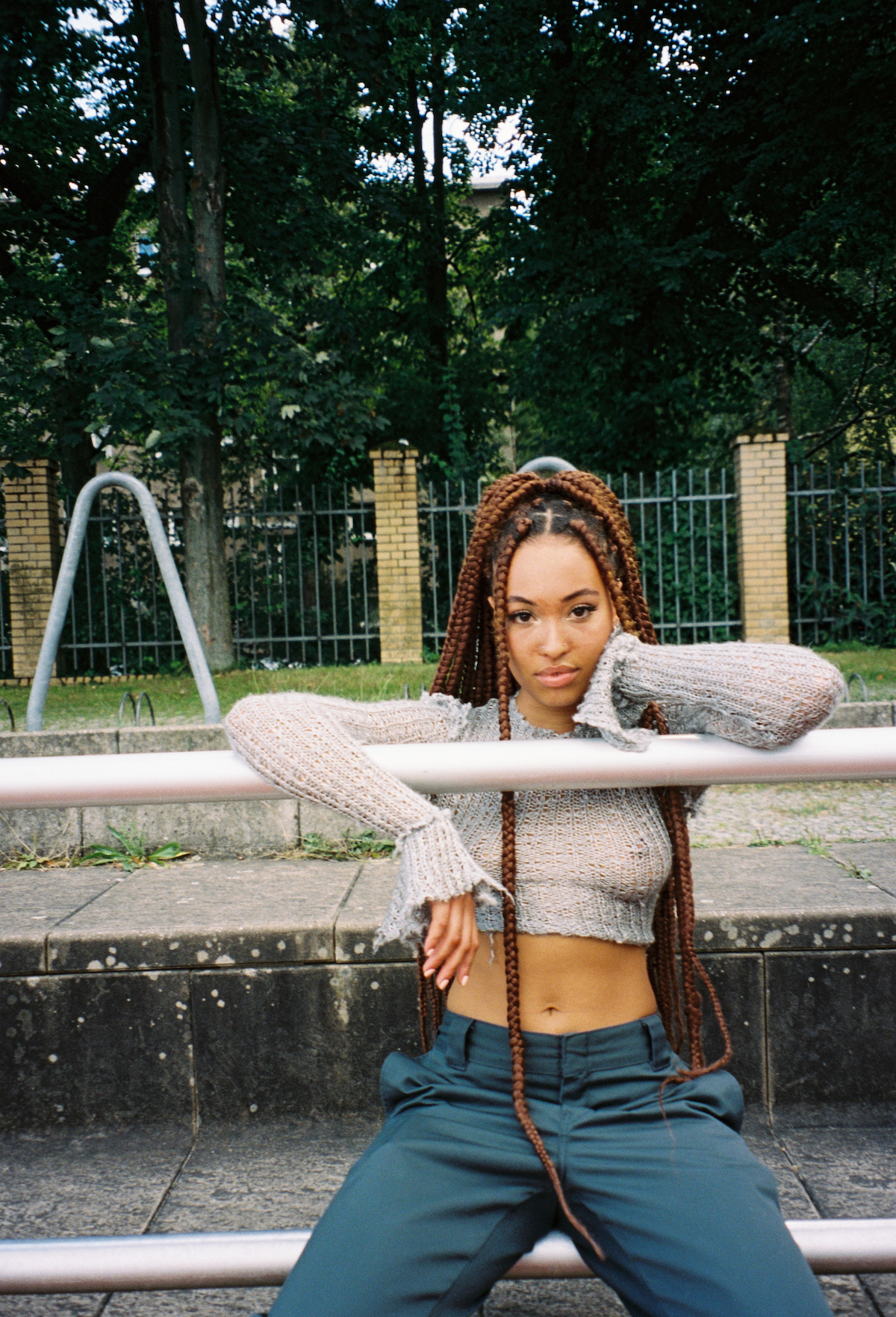
You mention that you really dislike when people ask you what you are mixed with. Does this bother you because the other individual is assuming you identify with both of your ethnicities (Dutch and Ghanian)? Do the people who ask you these questions tend to be full white, non-mixed POCs, or mixe POCs? Would you view the question differently depending on who asked it – i.e. a full white person, a non-mixed POC, a mixed POC?
Maxien: Questions about diversity tend to be difficult for me due to my own personal backstory. My mom is from Ghana and my dad was dutch. Ever since my dad passed away, my mother has been a single mom who raised me and my sister. When my dad was still alive, we were actually really connected with our Dutch family and culture. We never had the feeling that there was any type of racism in the family, until my dad passed away. Shortly after my dad’s passing, my grandpa and grandpa passed away. I remember my mom always telling us how close she was with his parents. Now thinking back on it i feel like they were also the only ones who didn’t have a problem with my mom being black.
My dad had three sons from a previous marriage and ever since my dad’s passing that’s when their true colours started to show. They stole all the money we had, cut my mom off from everything, and did not help with anything that had to do with the funeral. My mom was a single mom with two little kids who just lost her husband (who she still calls the love of her life) and had to pay for everything! I grew up with the anger of my mom and that’s where my anger towards white people comes from. I didn’t know any better. That’s the reason I dislike being asked what ethnicities I am made up of. I feel 100% Ghanaian even though I’m not. I don’t want to be half white, even though I am. One time I looked up my last name on Facebook to see if I could find some family members just out of curiosity and I did and told my mom. I have never seen my mom so upset and that’s where I closed that chapter of my life again. For me being mixed and a woman of color and identifying more with one race than the other had mostly to do with the struggle we had all been through. I never encountered any such thing as white privilege. I have afro hair, I have an accent when I speak Dutch, and I speak my own language – I’m just lighter skinned, I guess.
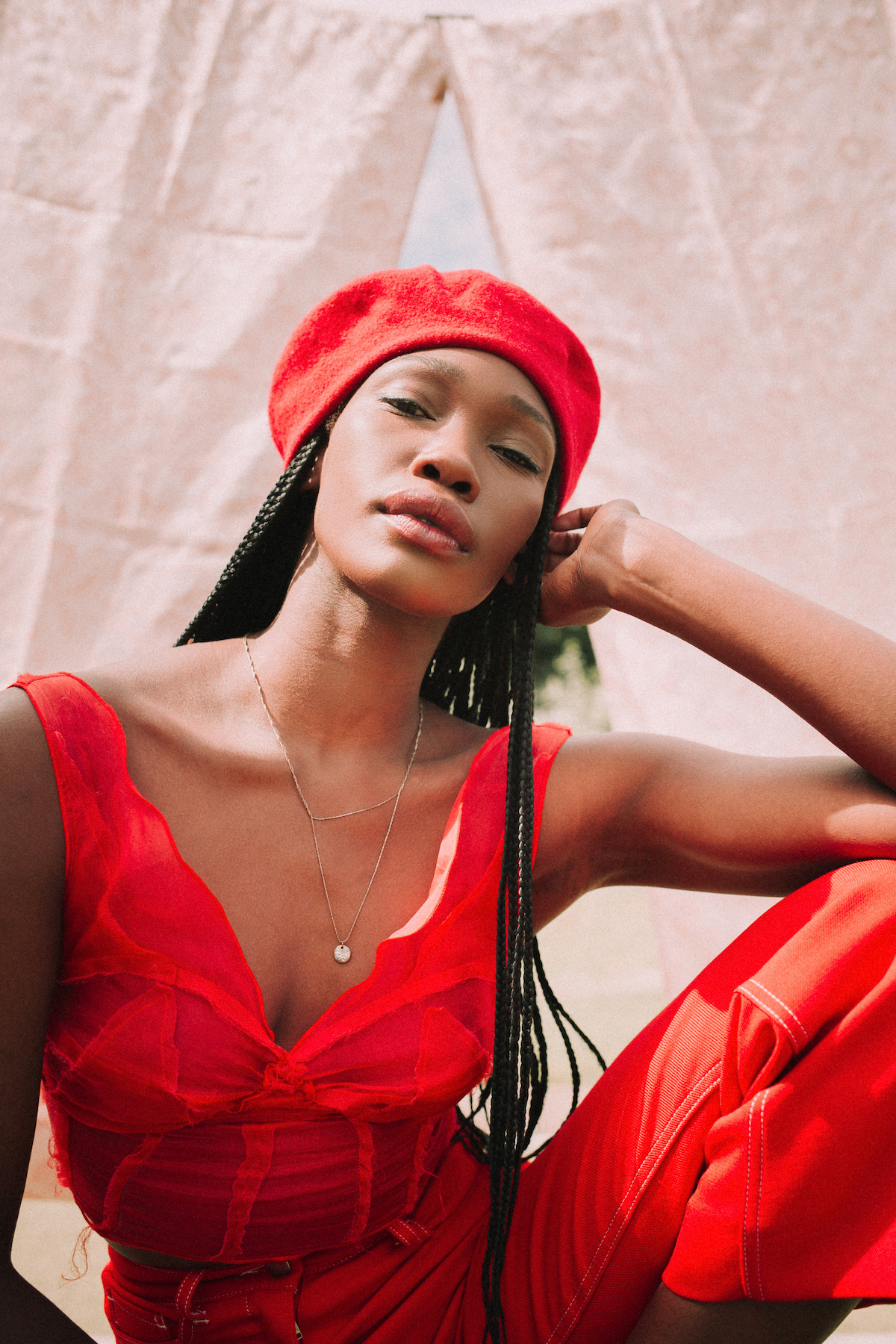
Ruby:
My name is Ruby. I am 26 years old and was born and raised in Berlin. My parents are originally from Ghana.
Is there a big Ghanaian community here in Berlin and have you had a lot of experiences with the Berlin-Ghanaian community?
Ruby: Yes, on both accounts.
Do you feel German, Guyanese or both?
Ruby: I definitely feel both German and Guyanese. But at the same time I am neither and I am just Ruby. I find myself caught inbetween but I don’t necessarily mean that in a negative way at all. Sometimes I feel like I belong to both cultures, sometimes to neither and I am looking for a place where I can carve out my own space.
How do you feel Germans and Guyanese respond to you?
Ruby: I feel that when I feel German the germans do not accept me and when I feel Guyanese, the Guyanese community doesn’t accept me. For this reason, it’s really important for me to be understood as a person and for me to try to figure out why people seem to think in these ways. The central question is “To whom do we belong?” rather than just thinking in terms of “He is German” or “He is Guyanese.” People want to put you in boxes, but people don’t fit neatly into boxes and that’s the point – for me, I decide for myself where I belong – and yet it seems like other people want to make this decision for me.
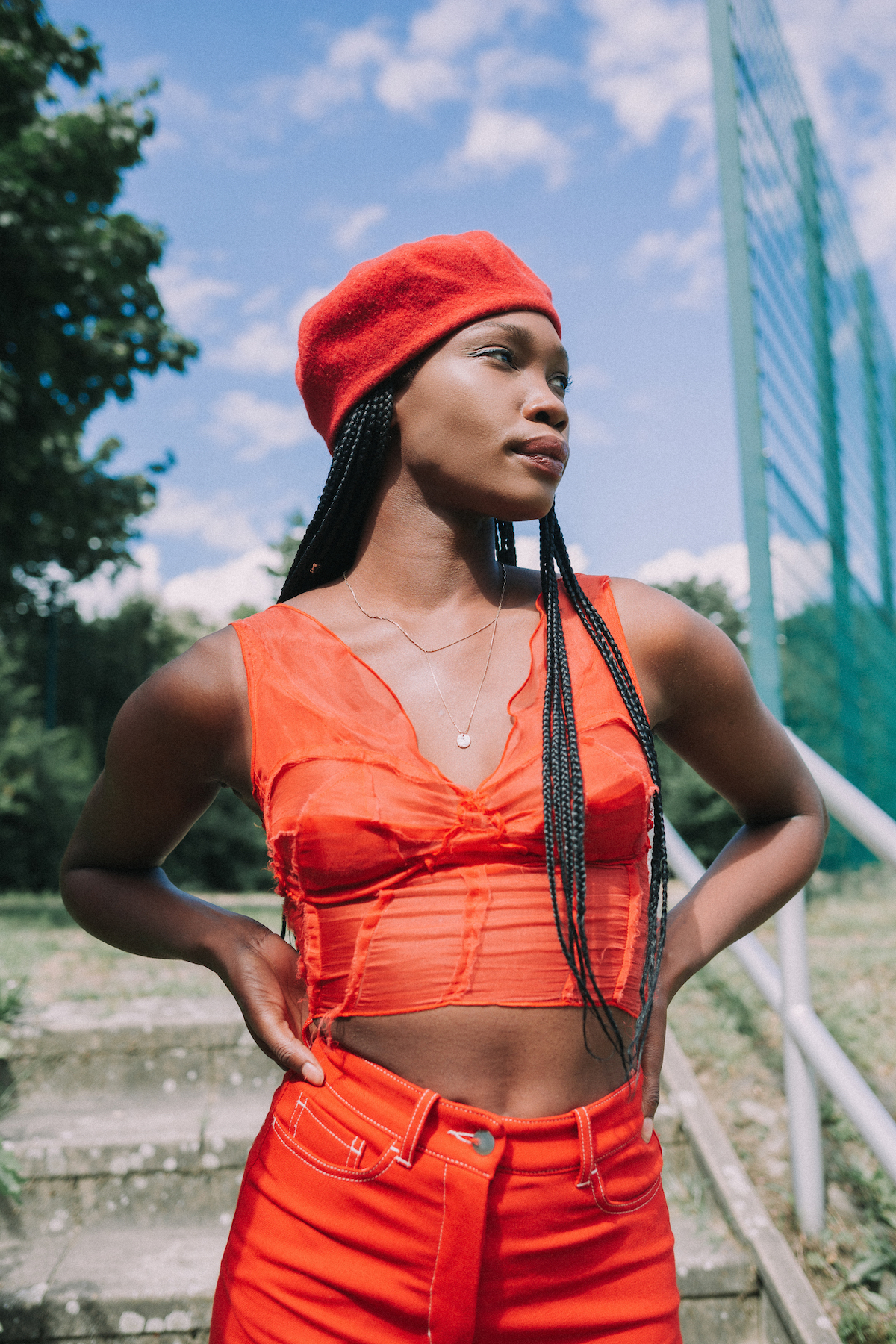
There has been a long history of pale skin as desirable over darker complexions. How do you feel about this and the skin bleaching phenomenon in minority communities?
Ruby: I am completely against bleaching cream; this symbolises the whole concept that being black is bad and negative, or dirty whereas white is positive, secure, safe, and clean. It re-enforces these negative stereotypes and these creams symbolise this. In my community even young children are having their skin bleached in order to escape day-to-day racism. Their parents are doing this because they think they are doing something good to prevent their kids from being harassed, but this is not the answer and this is very problematic. We need to work harder to be proud of our color rather than bleach it. We need to work harder for ourselves and for our sisters.
As a woman of color who is on the darker end of the spectrum, what has your experience been in your own community?
Ruby: I realise in my community that they make a definite distinction when defining what beauty is – when you are darker it’s not considered beautiful. [Those in my community who are lighter] compare themselves to me and say they are lighter than me to inturn feel better than you [and better about themselves]. This actually makes me feel worse for the person saying these things in that they really think they are better just because they have a fairer complexion. They are completely brainwashed in their way of thinking and this is so sad. WOC are creating their own hurdles when what we should be saying is, “Hey we have different colors but they are all beautiful and individual”. Clearly not every WOC who is lighter skin has responded this way to me or other WOC with darker complexions, but I am sad to say I have experienced this with a few women in my lifetime. But people are more aware now and there is more education about celebrating your own color and your own hair structure.
What has your experience been concerning your skin color outside of your community?
Ruby: People who are not observant and or considerate just see a black women in general when they look at me. They do not see an individual and they are not interested [in seeing anything else]. But when you merely glance at someone and immediately stereotype them, you are going to think all black women are the same. You are going to think all black women have attitudes, are temperamental, etc. They are basing characteristics – like being a loud and temperamental woman – off of skin color alone. But I am a human being – this means I can be sensitive and calm but I can also be loud. I can think a lot and reflect on things – I can be everything. We are dehumanised whether or not it is positive or negative racism, and are turned into caricatures – this is why I find the concept “black magic” so difficult – as it’s also just a character assigned to a person – a “noble savage.” It’s meant as a nice compliment but it is problematic as it dehumanises me.
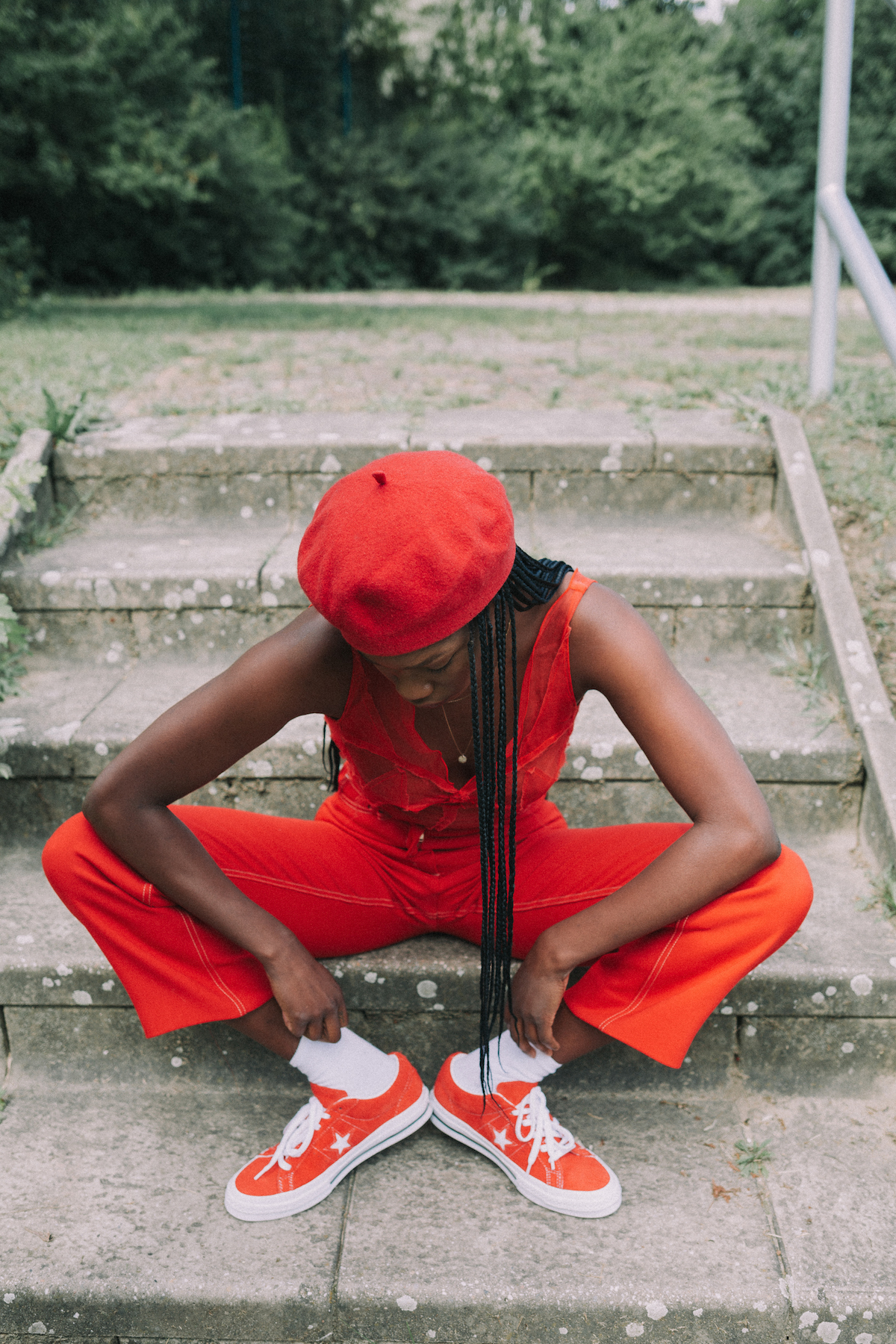
Culture and ethnicity are not always the same thing. This is true for people of color who are adopted into families from a different ethnicity as well as those who are of mixed-race. People who fall into this category do not traditionally fit a specific profile or demographic. Defining people as “white” or “black” is a narrow-minded way of perceiving race, culture, and ethnicity but one that is not surprising given the history of systemic and institutionalised racism, imperialism, colonisation, and white privilege. I would love to hear your thoughts on this.
Ruby: I can choose who I want to be at what time and what role I want to play. Just because I was born in Germany or am black does not mean I have to be 100% black or 100% German. Everyone has the right to decide what/who they want to be. I also find religion super interesting [and similar in this way] I take the aspects of many religions which I find interesting, and I decide for myself what belief for me is. You can combine everything that you like to make up who you are – unfortunately not many people accept this line of thinking. The most important thing is to stay true to yourself. We tend to divide ourselves too much, especially in terms of of borders and color. Yes we come from different places but we only work when we work together as a mass of people.
Conversations about race are arguably extremely important. However it seems that there is little willingness for the white majority to have honest and constructive conversations as most of these conversations (when they even happen) place whites at the center of attention, victimise the white majority and and focus on their feelings above all else. Would you agree with this statement and in what direction do you wish conversations about race and racism would go?
Ruby: I find that when people try to communicate with each other, they are not trying to be racist, but because it’s human nature to categorise, people still enter conversations with prejudices. The first step is to be aware of this – then we can start to have meaningful conversations. We need to be open to admitting other people might be right and to learn to be more empathetic. I think this would change a lot of things. Another important aspect is to accept being uncomfortable – to not shy away from uncomfortable conversations. The minute you start to talk about racism, because no one wants to be seen as a racist, or the POC does not want to be labeled a complainer – as this often happens – the conversation gets uncomfortable [and it’s hard to have an honest discussion this way]. We need to get uncomfortable and honest in order to finally talk about race and really look at each other differently.
_
Interview and photography by Rae Tilly for YEOJA Mag. Styled by Olive Duran. Hair and Makeup by Gianluca Venerdini. Check out Marcella, Maxien, and Ruby. For more articles on intersectional feminism and re-defining beauty, click here.



